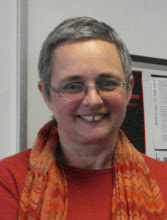Saying Goodbye, Facing Death 5-13 March 2005
Venue: The Buddhist House, 12 Coventry Rd, Narborough LE19 2GR * tel:0116.286.7474
For many Buddhists work with the dying and the bereaved is an important practice. Buddhists are often seen as particularly able to work in this field, perhaps because Buddhism offers a confident but flexible metaphyisic around death, but also because the calm brought by meditation and other mind-training techniques are often appreciated by the dying. This course block focuses on different aspects of work with dying and is offered in sections so that you may attend all or part.
SUPPORT FOR THE DYING: 5-6 March : Death makes life more vivid. Being with a person in the last days of their life can be deeply moving. It can also be formidably challenging. The dropping away of personal trappings that comes at the end of life can throw us into a naked encounter with our shared impermanence. Giving dignity to the process of death we touch the eternal. Accompanying a dying person is a process that demands support on many levels; there may be physical and intimate tasks, as well as experiences and feelings on verbal and non-verbal levels. Each death, as each life, is unique. We are never fully prepared. This first weekend will offer opportunities to share experiences, explore responses, and look at how to best be of service. It will look at the stages a person passes through in acknowledging terminal illness, the tasks to be accomplished and the final process of the last weeks and days.
DEATH, CULTURE AND UNIVERSALITY: 7-10 March: cultures accommodate and support the needs of the dying and the bereaved. Death is the great leveller. For example, mothers from different backgrounds sharing openly their experience at the loss of a child find a communion in shared humanity, transcending differences of race or history. Such experiences can build the foundations for peace between embittered communities as in the women's peace movement in Northern Ireland. At the same time some cultural differences in attitudes to death bring perplexity. The suicide bomber or the fight to the death to redeem family honour can be hard for some to understand. This practical section of the course block will give opportunities to research and explore different attitudes to dying and to draw on the rich legacy of human ritual to find tools that can be used for working with the dying and bereaved, both in Buddhist and in other cultures of the world. There will also be scope to examine personal reactions.
DAY RETREAT : 11 March In the midst of impermanence: a light that does not fade
Patacara, disciple of the Buddha, spoke this verse:
Lo! from my heart the hidden shaft is gone,
The shaft that nestled there, she hath removed,
And that consuming grief for my dead child
That poisoned all the life of me is slain.
Today my heart is healed, my yearning stayed. Perfected the deliverance wrought in me.
Lo! I for refuge to the Buddha go -
The only wise - His sangha and His Way.
Patacara had been crazed with grief until she found the Buddha. Following him she was able to say "my heart came back to me". This day retreat will be a chance to practice together and rediscover that light.
SUPPORTING THE BEREAVED: 12-13 March: Just as we all face our own mortality, so too we face the loss of people we love. This is the first Noble Truth. The problem of loss was the transformative seed that set the Buddha on his spiritual quest. At the same time bereavement brings severe mental distress that can transform into physical ill-health and flight into damaging behaviours. Acute or chronic, the grief that finds expression provides a door to healing and beyond it to spiritual maturity. This weekend will offer opportunities to talk about personal and universal responses to grief. It will look at established ways of understanding the grieving process and of supporting those caught in it, each with their unique needs.
BOOKING:
Send a deposit of £20 to The Buddhist House, 12 Coventry Rd, Narborough LE19 2GR
Cost: Dana plus accommodation @ twin room at £18 per full day (£10 if you bring a sleeping bag)




